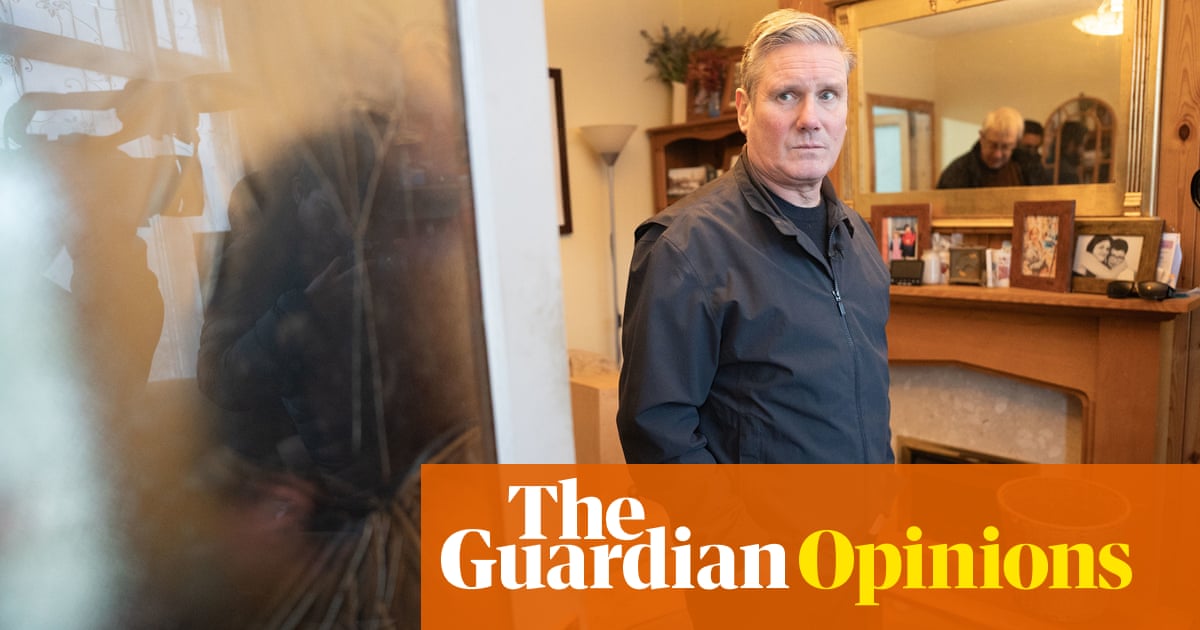
“Increasing desperation, bordering on hysterical” is how Keir Starmer responded to the Conservatives’ claim that his decision to spend Friday nights with his family is a threat to national security.
But a man cannot live on cabinet briefings alone – and online attacks on Starmer by Conservatives have been largely met with deadpan resistance by politicians and the public alike.
When Greg Hands used X to ask “What if Putin attacks at 6.01pm?” not only was the comment swiftly appended with a Community Note – the facility enabling users to add context to potentially misleading posts – but Henry Morris, the wag behind the Secret Tory account on Twitter, summoned the ghost of Boris Johnson by replying: “Exactly. Imagine if COBR was convening and Starmer was urgently trying to finish a book about Shakespeare instead.”
Anne McElvoy, former deputy editor of the Spectator and a columnist on its sister publication, the Daily Telegraph, also chipped in dryly, commenting: “Then he would come back to work, Greg” – while another X user simply tweeted a graph showing the fall in UK defence spending since the Conservatives came to power.
With even senior Conservatives agreeing with Starmer but not daring to break cover, politicians from the left have all spoken about how vital it is for anyone in a high-powered job to carve out time for their family.
“When I was in parliament, I always picked my children up from school on Fridays and, no matter what the political drama was, I would bake a cake,” said Harriet Harman, Labour’s former minister for women and equalities.
Harman said the Conservative outrage was insincere. “Prime ministers have always found time for their families,” she said. “They’ve just never admitted it.”
Being prime minister takes its toll. Tony Blair visibly aged during his years in office. Gordon Brown’s temper had frayed alarmingly by the time he left No 10.
The prime ministers who suffered least had outlets: Churchill painted, worked in bed for much of the day and drank copious amounts of alcohol. William Gladstone chopped down trees, the Marquis of Salisbury rode around on a tricycle, Sir Alec Douglas-Home indulged in flower arranging and Margaret Thatcher liked to kick off her shoes and enjoy a few whiskies.
“Chillax” was officially adopted by the mainstream after a friend of David Cameron said that “if there was an Olympic gold medal for ‘chillaxing’, the prime minister would win it”.
“Everyone knows that family is what keeps you going,” said Ed Davey, leader of the Lib Dems, who wakes up at 6am every morning to help his disabled son wash and get ready for the day. “My relationship with my children means everything to me.”
Andy Burnham, the mayor of Greater Manchester, agreed. “If you didn’t make space for your family, you’d be failing in your first duty – which is as a parent,” he said. “Being with my family makes me a better politician: an hour spent with them is worth about 10 with my advisers.”
For all the outrage thrown at Starmer, even senior Conservatives have happily indicated in the past that they are on the same page. Nadine Dorries, a former secretary of state for culture, media and sport, posted on X that Starmer’s boundary-setting “made me laugh out loud”.
But in a 2012 interview with the Observer, Dorries talked about when she realised that “being an MP didn’t mean I had to sacrifice every moment to others”.
Dorries extolled the virtues of taking time to be pampered. “I relish spending time having a pedicure,” she said. “Having beautifully painted toenails screams out ‘This lady is no workaholic’.”
Stella Creasy, the Labour candidate for Walthamstow who campaigns vigorously for a better work-life balance in parliament, said that Starmer’s comments were “refreshing” – and the fuss about them a nonsense – because “out in the real world, most dads want to be with their kids”.
“For it to be seen as a treat and an indulgence in the very place that makes the laws doesn’t help families struggling to get the laws around family and working life enacted in their workplaces,” she said.
Tom Debenham, founder and managing director of People Insight, who has advised top people in organisations including Oxford University, McDonald’s and NHS Supply Chain, said the outrage was outdated.
“No one has talked like this in UK workplaces since the 1970s,” he said. “It would get you known as a toxic boss and irrevocably taint your brand.”
Yasmine Cheyenne, author of The Sugar Jar: Create Boundaries, said society still exerts enormous pressure on professional males to ‘be a man’ – which means not having family, emotions, friends or self care as a priority.
“But this is so misguided because when we give everything to our job, we walk around tired, exhausted and we don’t make decisions as clearly,” she said.












